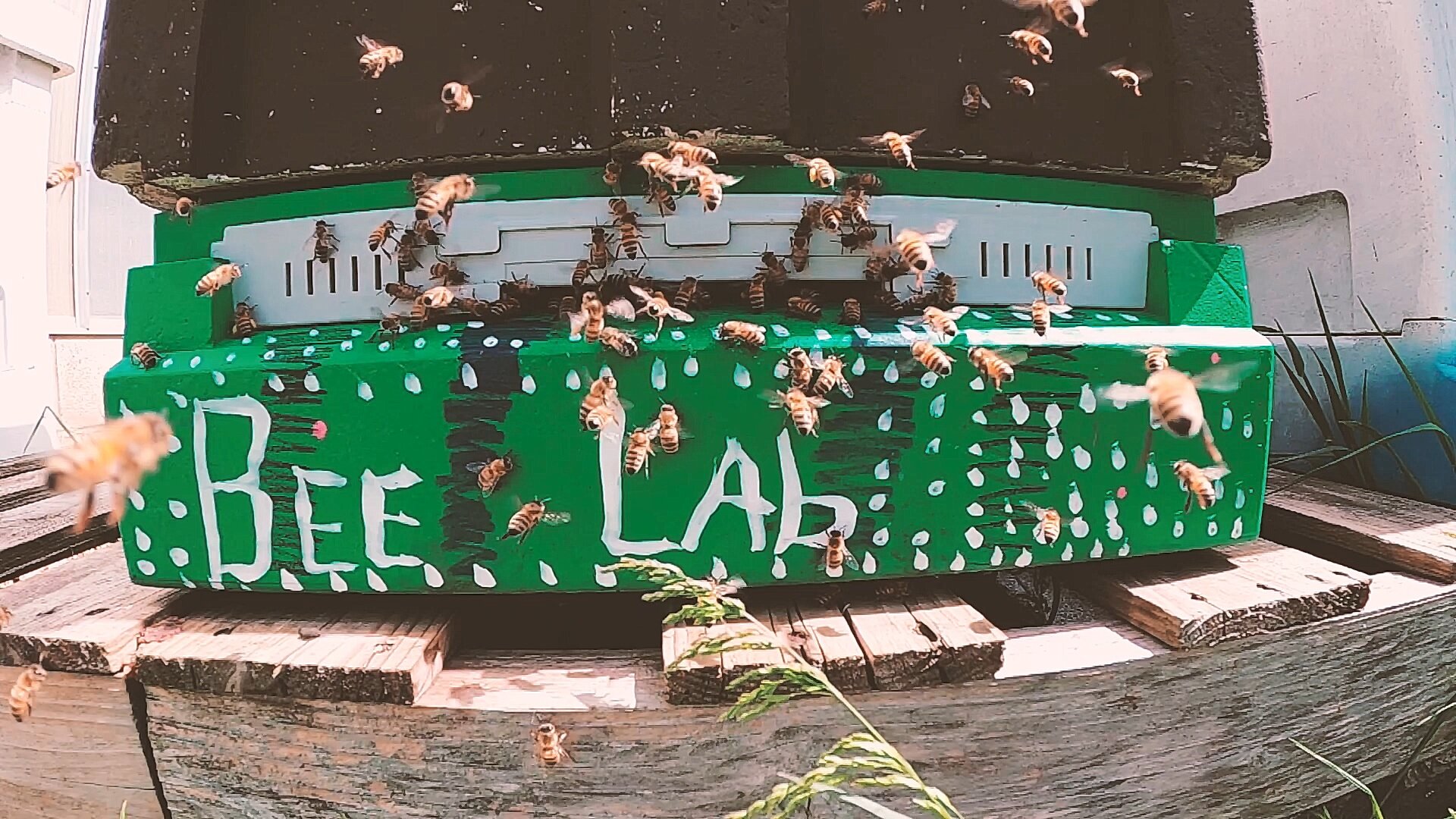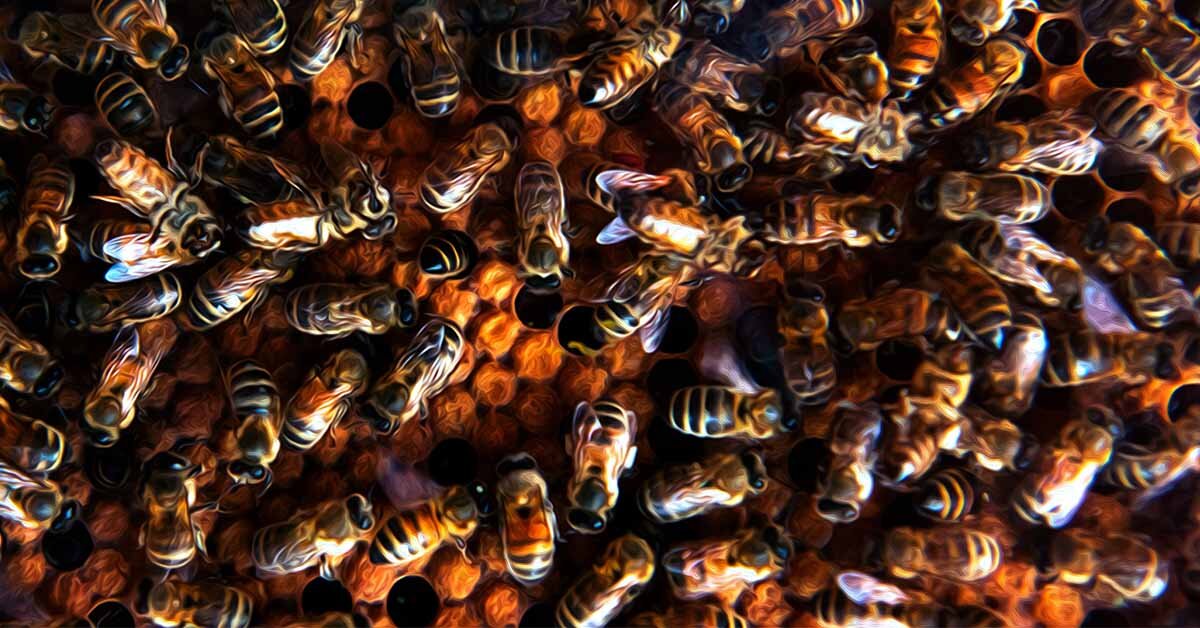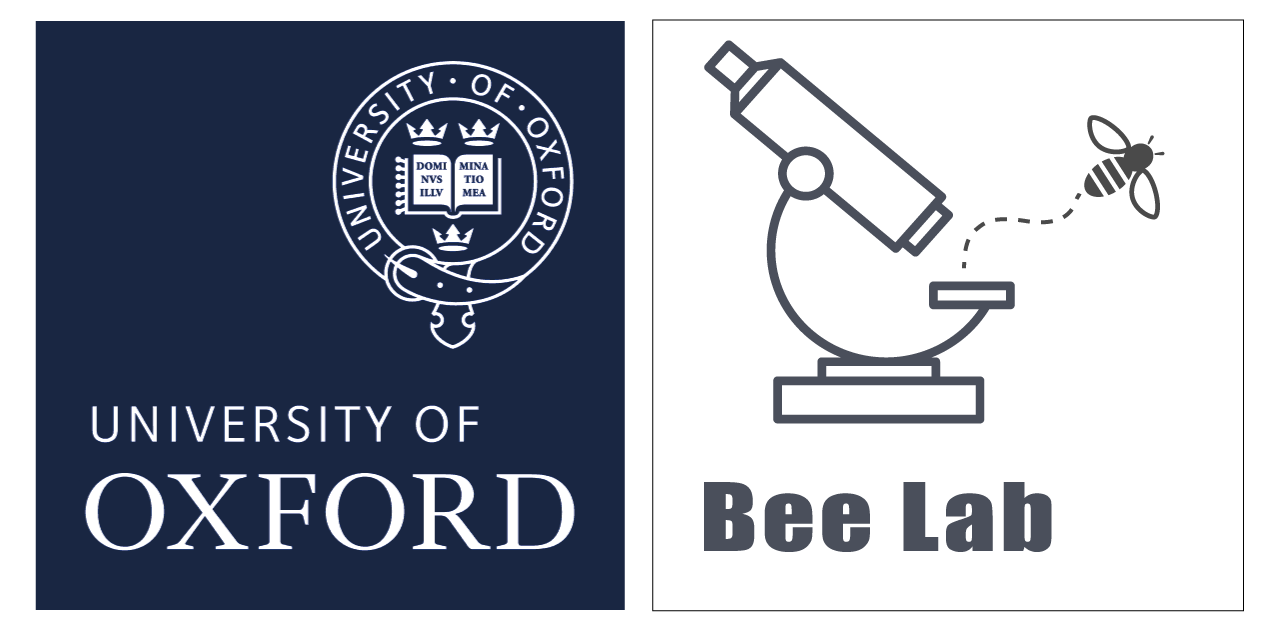
University of Oxford Bee Research Laboratory
Bees have evolved to specialize in feeding on floral nectar and pollen. Nectar is a reward produced by plants to lure pollinators to flowers. Pollen is the male gamete of a flowering plant. Our lab is dedicated to understanding how bees detect nutrients, regulate their nutrition, and learn to identify sources of food. We study how key nutrients affect their behaviour. We also study how potential toxins in food, including pesticides, alter their valuation of food rewards.
We have a bespoke lab designed to study the behaviour and physiology of bees.
Hope Professor of Entomology.
We congratulate Jeri (Prof. Wright) on her new position as Hope Professor of Entomology. Frederick William Hope founded this prestigious position in the 19th century, and Jeri is the first woman to hold this professorship since 1860. See her inaugural lecture with "Bees and biodiversity: finding hope in the Anthropocene" to learn more about the previous founders and the future of pollinators biodiversity.
In the news
Why insects are more sensitive than they seem.
The insects that get depressed.
For decades, the idea that insects have feelings was considered a heretical joke – but as the evidence piles up, scientists are rapidly reconsidering.
Geraldine Wright, a professor of entomology at the University of Oxford, gives the example of hunger, which is a state of mind that helps you to alter your decision-making in a way that's appropriate, such as prioritising food-seeking behaviours.
by Zaria Gorvett, 29th November 2021, Senior Journalist at BBC
In winter, starved of pollen and lacking natural forage, honeybee colonies can easily falter. But nutritious substitutes may be the answer
by Anna Turns, 28th December 2020, Environmental Journalist
The Lab
Location:
The Wytham Field Station
The lab is located on the outskirts of Oxford near the village of Wytham next to the FAI farm.
Lab setting
We have a bespoke lab designed to study the behaviour and physiology of bees.
Semi-field setting
Besides our research labs, we also have a greenhouse facility outside, where we can keep bees in tiny colonies with a controlled environment.
Field setting
Currently, we have two apiaries at the Wytham field station and farm. These colonies are the lab's crown jewels. Without them, we couldn't do our work.
Collaborations
Currently, Professor Geraldine Wright has collaboration with Professor Sharoni Shafir from the entomology department at HUJI and also with Professor Phil Stevenson from Kew Gardens, London. Check out more about our joint efforts.

“Tiny miracle workers“
— FAO









